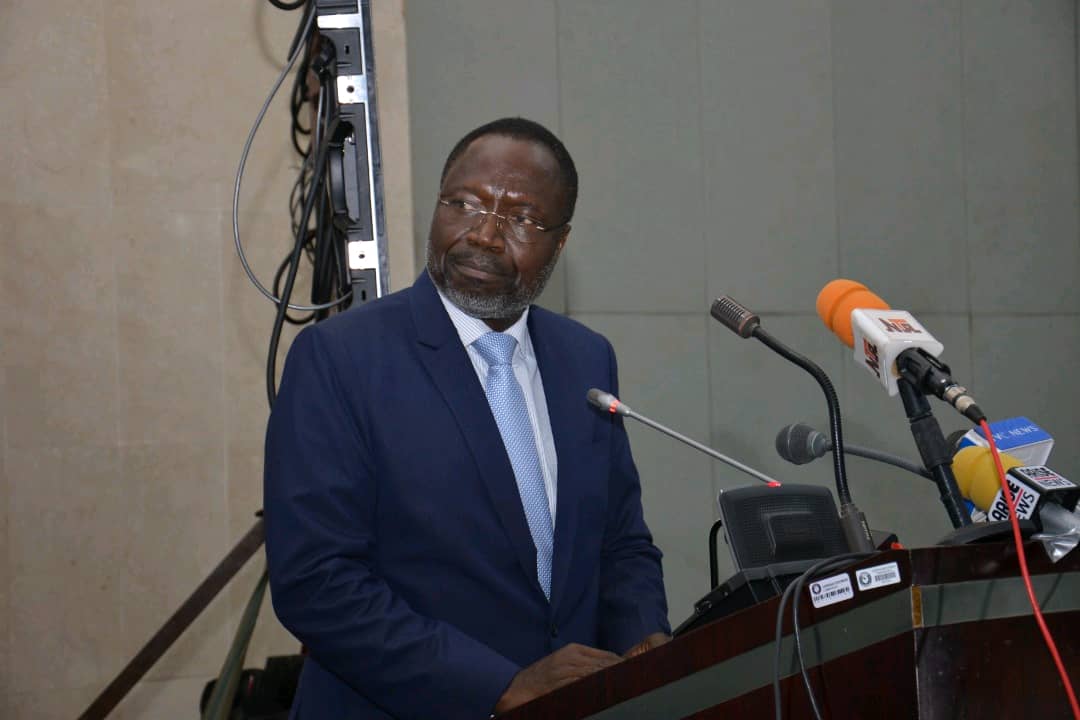Economy
Debt, Inflation, Currency Depreciation Intimidate ECOWAS Economies – President

|
Getting your Trinity Audio player ready...
|
Debt, Inflation, Currency Depreciation Intimidate ECOWAS Economies — President
Julius Thomas
The President of the ECOWAS Commission, Dr Omar Touray, on Thursday said debt, currency depreciation, inflation and other indices have slowed down the economies of countries in the sub region.
This is contained in the 2023 Annual State of the Community Report he presented to the ECOWAS Parliament in Abuja.
Touray said even though some member states have posted impressive economic growth, inflation, deteriorating fiscal balance and mounting public debts have continued to erode the welfare and standard of living of citizens.
“The period under review was characterised by the continuation of geo-political conflicts, persistent inflationary pressures, high and rising public debts as well as tightening of monetary policies in most regions.
“In this context, the global economic output growth is expected a slowdown to 3.0 per cent in 2023, compared to 3.5 per cent in 2022.
“However, global inflation is expected to moderate at 6.9 per cent in 2023, compared to 8.7 per cent in 2022 due to the fall in the international prices for commodities, and the easing of supply bottlenecks especially in the second half of the year.
“The performance of the ECOWAS economies in 2023 mimicked that of the global economy due to the strong linages, especially by trade, investment and financial services.
“Thus, their growth rate slowed to 3.7 per cent in 2023, compared to 3.9 per cent in 2022.”
Touray said this was accentuated by inflation and debt.
“The annual average inflation is expected to peak at 20.0, compared to 17.3 per cent in 2022 due mainly to imports and depreciation of national currencies.
“The public debt deteriorated further to 48.8 per cent of Gross Domestic Product (GDP), compared to 36.8 per cent of GDP in 2022,” the ECOWAS commission president added.
Touray, however, said the region’s budget deficit was expected to moderate slightly to 5.2 per cent of GDP, compared to 5.4 per cent of GDP in 2022.
He attributed this to increase in revenue administration and expense control.
The News Agency of Nigeria (NAN) reports that other areas covered by the report include the political stability of the region, peace and security.
It also looked at the political transitions in the three member states affected by coup d’etat, namely: Mali, Guinea, and Burkina Faso, the coup in Niger Republic, terrorism in the Sahel and elections.
Other areas looked at are the free movement of persons and goods, consolidation of the ECOWAS Customs Union, promotion of common market and private sector development, and the ECOWAS Monetary Union, among others.
After the presentation of the report, the Speaker of the ECOWAS Parliament, Mr Sidie Tunis said details of the report would be discussed at plenary.
The appraisal of the report is an important exercise in the Community’s agenda, and the parliamentarians are expected to review the past year and forecast for the year ahead.
This is to take stock of the Community’s political, economic, and social situation, reaffirm its objectives, and set out some broad guidelines for the coming months.
NAN also reports that the presentation of the report would enable the ECOWAS Parliament to have a wholesome appreciation of the level of implementation of the Community’s programmes and the challenges encountered.








